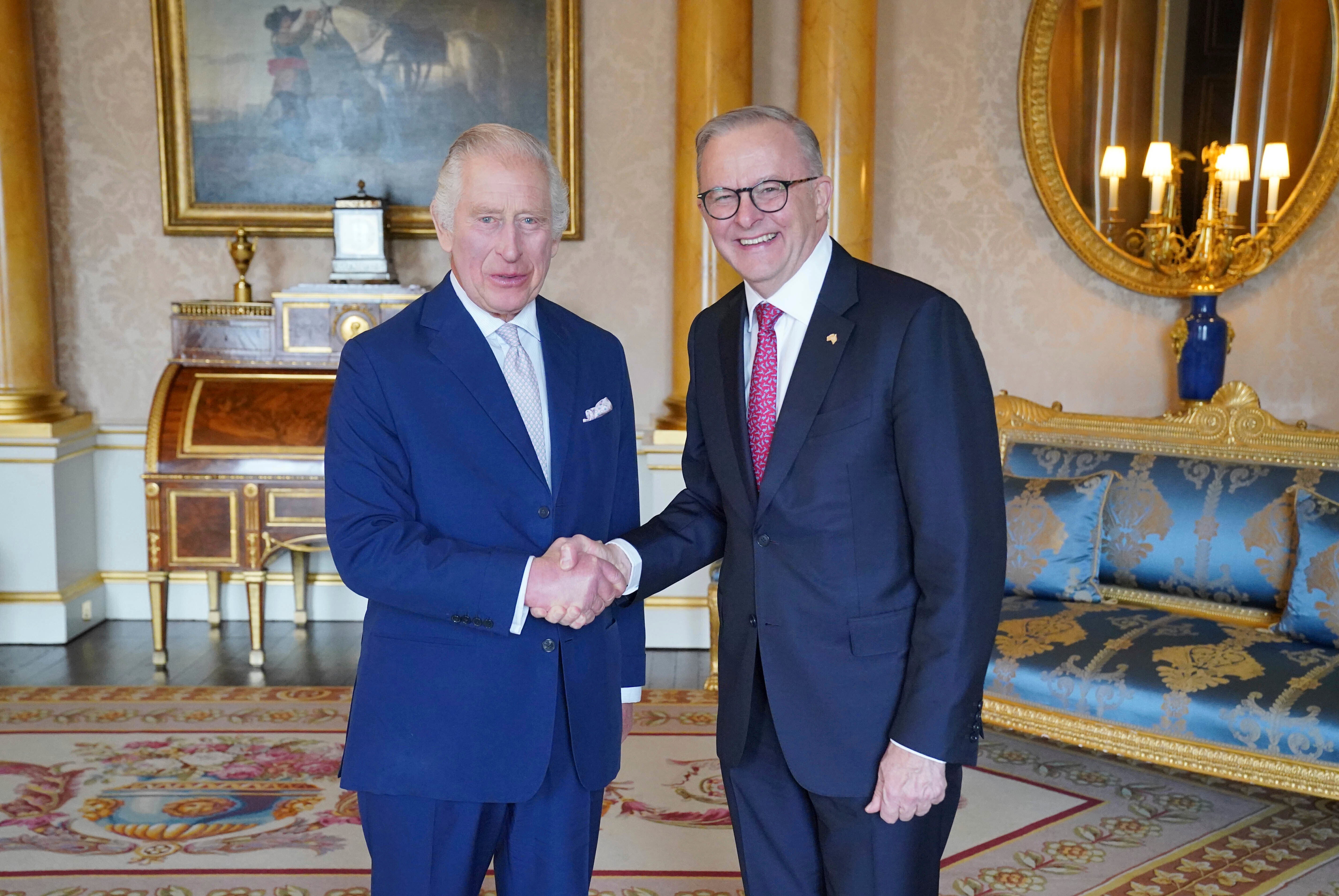Australia abandons plans to hold referendum on replacing King Charles and becoming a republic
Government admits it cannot afford to lose vote on constitutional reform after Voice to Parliament rejected
Your support helps us to tell the story
From reproductive rights to climate change to Big Tech, The Independent is on the ground when the story is developing. Whether it's investigating the financials of Elon Musk's pro-Trump PAC or producing our latest documentary, 'The A Word', which shines a light on the American women fighting for reproductive rights, we know how important it is to parse out the facts from the messaging.
At such a critical moment in US history, we need reporters on the ground. Your donation allows us to keep sending journalists to speak to both sides of the story.
The Independent is trusted by Americans across the entire political spectrum. And unlike many other quality news outlets, we choose not to lock Americans out of our reporting and analysis with paywalls. We believe quality journalism should be available to everyone, paid for by those who can afford it.
Your support makes all the difference.Australia has abandoned plans to hold a referendum on replacing King Charles as head of state and becoming a republic.
Matt Thistlethwaite, the minister in charge of the pro-republic portfolio, confirmed the move on Monday, as the government admitted it could not afford to lose another vote on constitutional reform.
The decision comes after the Labor prime minister, Anthony Albanese, was dealt a blow when his attempts at reforming the constitution and giving Aboriginal Australians a “Voice to Parliament” suffered an emphatic defeat. The policy would have established a body to give politicians advice on matters affecting the country’s Indigenous population.

After the decisive loss, which coincided with a sharp decline in support for Mr Albanese’s government, Mr Thistlethwaite acknowledged that putting the question of the monarchy to the public had become “a lot harder”.
Mr Thistlethwaite has not suggested a fresh timetable vote, indicating that the government could be retreating from its aim to hold a vote in its second term if re-elected early next year.
Mr Thistlethwaite said: “I’m not going to put a timeline on it. At the moment, our priority is cost of living, and that’s the appropriate thing for the government to be concentrating on.”
Government insiders have been privately warning Mr Albanese against the move over fears that it would leave him vulnerable to criticism from the opposition that he was focusing more on constitutional reforms than on the impact on Australians of the high cost of living.
Speaking in a breakfast television interview with the Australian Broadcasting Corporation, Mr Thistlethwaite said: “The current method of selecting our head of state is undemocratic, it doesn’t represent modern Australian values, and that’s something we want to begin a discussion with Australians on in the longer term. But at the moment, our priority is cost-of-living relief for Australians.”
In a further hint that the government has dropped the vote from its agenda, Mr Albanese, a long-time supporter of an Australian republic, has said very little about it since the Voice referendum defeat.
As is outlined in the country’s constitution, a majority of Australians in a majority of states would need to vote “yes” in order for Australia to become a republic. The last vote on the issue in 1999 was heavily defeated, with the Conservative prime minister at the time, John Howard, in strong opposition to replacing the late Queen Elizabeth II as head of state.
A small majority of Australians (35 per cent) wanted Australia to remain a constitutional monarchy when a YouGov poll was taken around the first anniversary of the accession of King Charles III in September, whereas 32 per cent wished for the country to become a republic as soon as possible.
The King is set to visit Australia for the first time as the nation’s head of state later this year. The last visit by the reigning monarch was when the late Queen toured the country in 2011.

Join our commenting forum
Join thought-provoking conversations, follow other Independent readers and see their replies
Comments